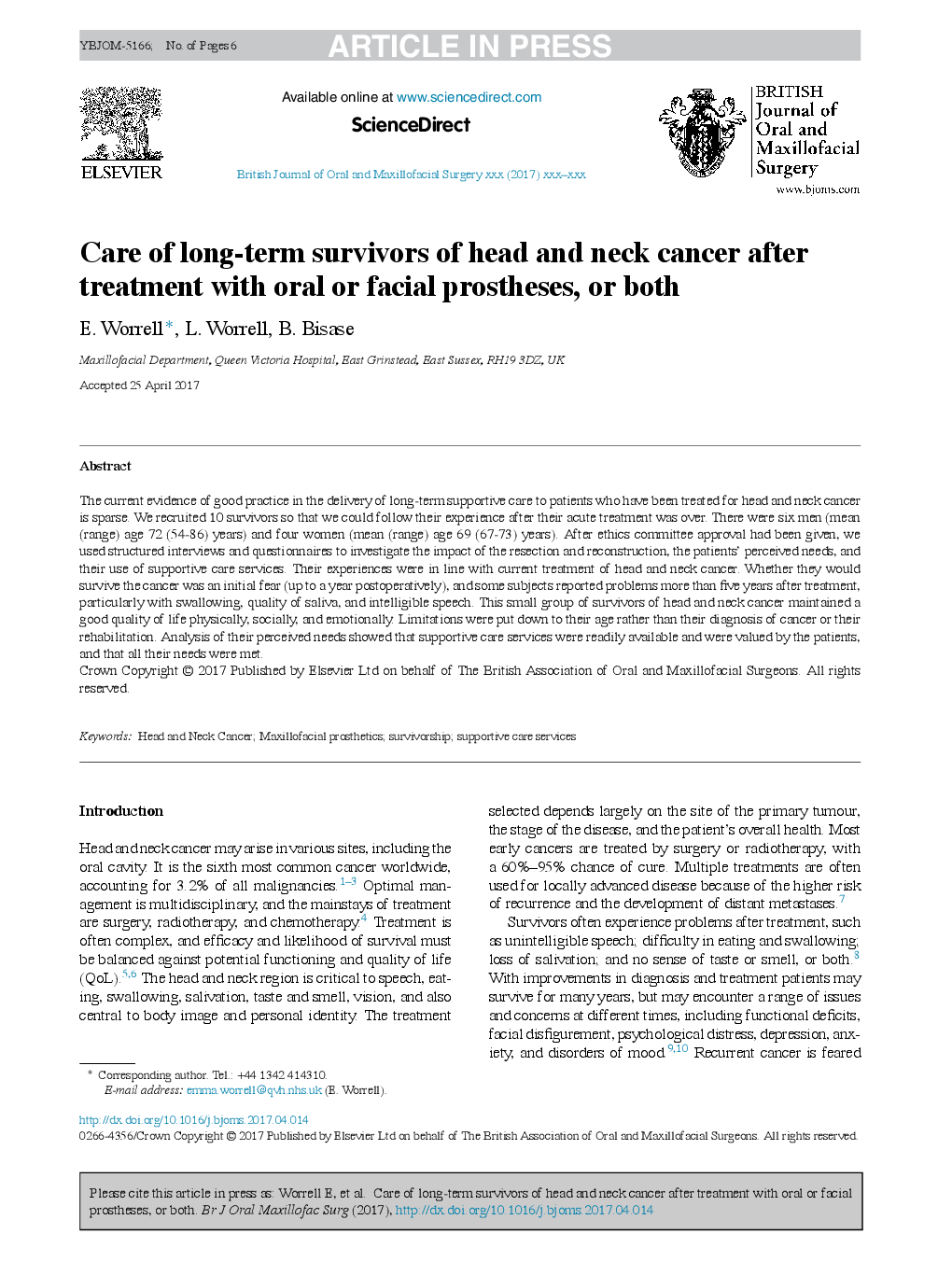ترجمه فارسی عنوان مقاله
مراقبت از بازماندگان درازمدت سرطان سر و گردن بعد از درمان با پروتز دهان یا صورت و یا هر دو
عنوان انگلیسی
Care of long-term survivors of head and neck cancer after treatment with oral or facial prostheses, or both
| کد مقاله | سال انتشار | تعداد صفحات مقاله انگلیسی |
|---|---|---|
| 121188 | 2017 | 6 صفحه PDF |
منبع

Publisher : Elsevier - Science Direct (الزویر - ساینس دایرکت)
Journal : British Journal of Oral and Maxillofacial Surgery, Volume 55, Issue 7, September 2017, Pages 685-690
ترجمه کلمات کلیدی
سر و سر و گردن، پروتزهای فک و صورت زنده ماندن، خدمات مراقبت حمایتی،
کلمات کلیدی انگلیسی
Head and Neck Cancer; Maxillofacial prosthetics; survivorship; supportive care services;

